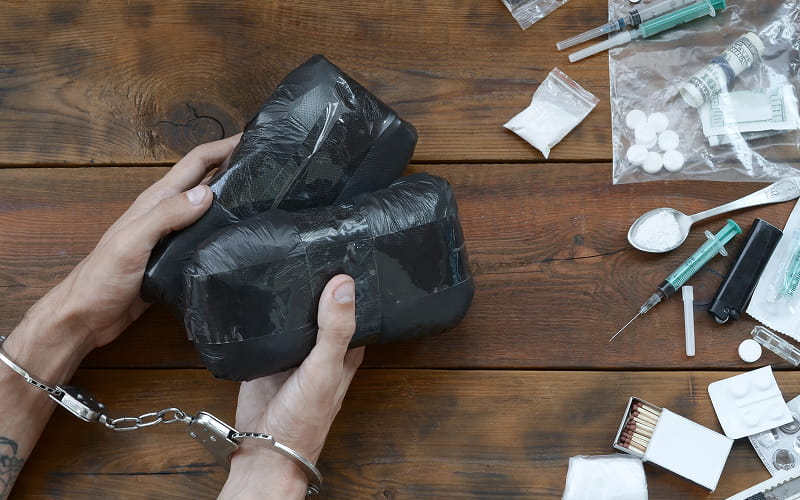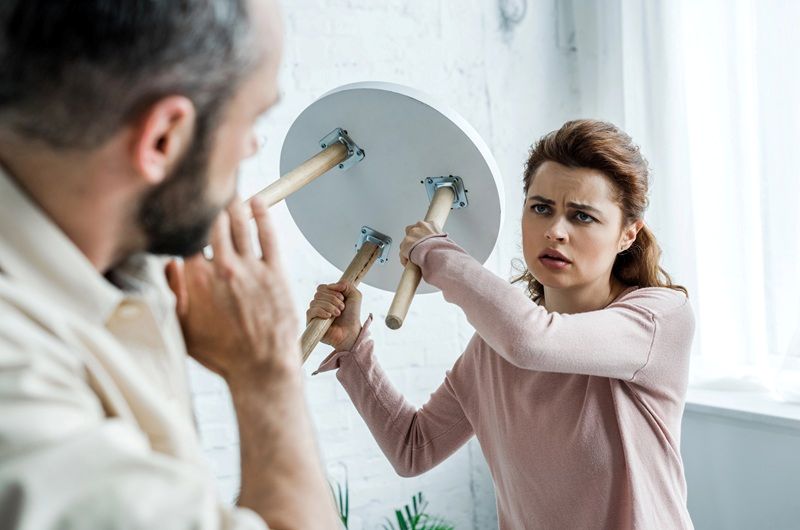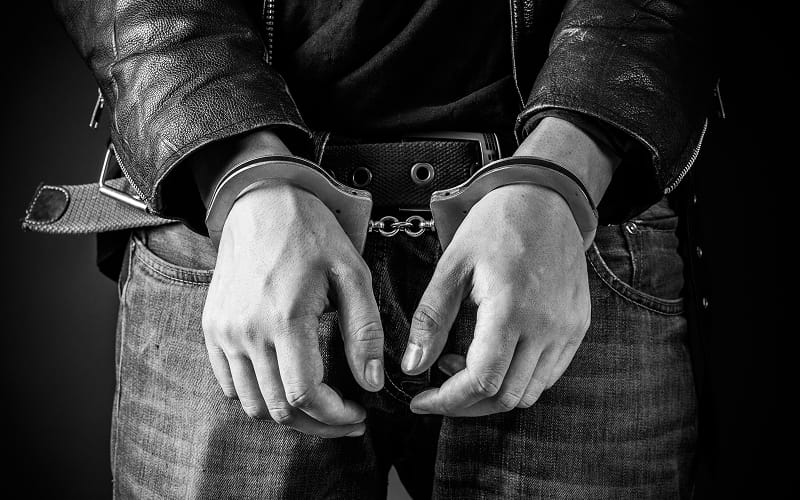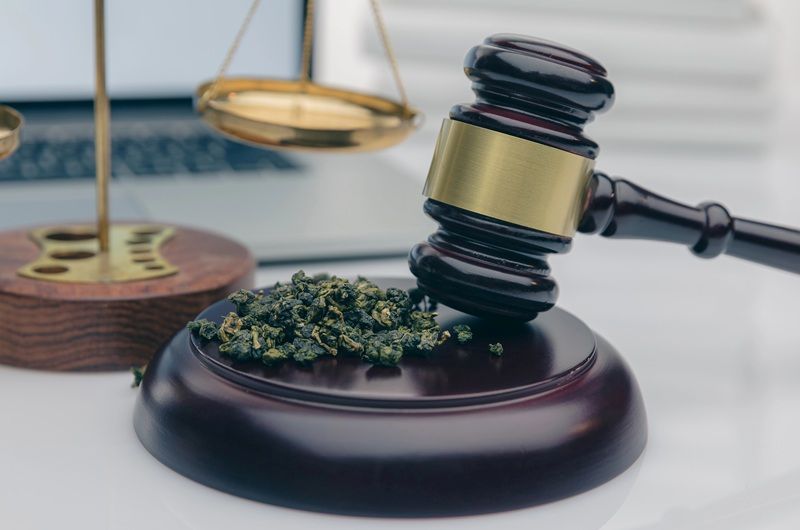Facing drug possession charges in Fairfax County, Virginia, can be formidable. The legal system is complex, and the consequences of a conviction can be severe. However, the prosecution must prove its case beyond a reasonable doubt, and there are multiple ways to challenge the evidence against you.
Understanding legal defenses, constitutional protections, and procedural errors can help you fight back. Unlawful searches, mishandled evidence, or lab errors can weaken the case, leading to reduced charges or dismissal. This article explains how to contest drug evidence effectively and why experienced legal representation is critical.

Understanding Drug Possession Laws In Virginia
Drug possession means having a controlled substance without a valid prescription. There are two types: actual and constructive. Actual possession means the drugs are directly on you, like in your pocket or bag. Constructive possession happens when drugs are found in a place you control, such as your car or home, even if they aren’t physically on you.
The severity of penalties depends on the type and quantity of the substance. Simple possession of marijuana carries a fine. Possession of Schedule I or II drugs, like heroin or cocaine, can lead to felony charges and jail time.
These classifications are important because they shape how prosecutors argue their cases. Whether possession is actual or constructive, the prosecution must prove it beyond a reasonable doubt. Any weaknesses in their argument create defense opportunities. Now, examine the types of evidence used and how to challenge them.
Types Of Drug Evidence Used In Prosecutions
Understanding the evidence used against you in a drug possession case is crucial for building a strong defense. Prosecutors rely on multiple types of evidence to support their claims, but each type has weaknesses that your attorney can challenge. Knowing what to expect helps you prepare.
Physical Evidence
The most common type of evidence is physical drugs, paraphernalia, or residue found during a search. Prosecutors use these items to prove possession. However, they cannot use in court evidence obtained through an illegal search, mishandled, or contaminated.
Witness Testimony
Law enforcement officers, confidential informants, or bystanders may testify in drug cases. Officers often claim they observed suspicious behavior or an attempt to hide drugs. However, attorneys can challenge witness credibility, especially if testimonies are inconsistent, biased, or influenced by ulterior motives.
Laboratory Testing & Reports
Prosecutors must scientifically confirm that a seized substance is illegal. Laboratory tests determine the substance’s identity and quantity. However, errors in testing, contamination, or mishandling of samples can lead to inaccurate results, creating opportunities for evidence challenges.
Digital & Surveillance Evidence
Prosecutors sometimes use phone records, surveillance footage, or text messages to suggest drug distribution. However, these pieces of evidence can be misleading, taken out of context, or obtained unlawfully. Defense attorneys often challenge their accuracy, relevance, or admissibility in court.
Recognizing the types of evidence used in drug cases helps identify potential weaknesses. You can strengthen your defense by challenging how evidence was obtained, handled, or interpreted. Understanding these weaknesses is key to exploring legal grounds for dismissing or suppressing drug evidence.
Grounds For Challenging Drug Evidence
Drug possession charges don’t always hold up in court especially when evidence is flawed. Understanding the legal grounds for challenging drug evidence can help you fight back. The right defense strategy depends on the details of your case and the prosecution’s claims.
Illegal Search & Seizure
The Fourth Amendment protects against unlawful searches. If police lacked probable cause, a warrant, or a legal exception, any evidence they obtained may be inadmissible. Your attorney can file a motion to suppress the evidence if an illegal search occurred.
Chain Of Custody Issues
The prosecution must track evidence from seizure to court, documenting each step to maintain its integrity. Gaps, lost records, or improper storage can doubt its reliability, and defense attorneys may argue for its exclusion if mishandling occurs.
Witness Credibility
Police officers and informants often provide testimony in drug cases. However, officers may exaggerate claims, and informants may have personal motives. Cross-examining these witnesses can expose inconsistencies and weaken the prosecution’s case.
Laboratory Testing Errors
Lab reports aren’t always accurate. Testing mistakes, contamination, and human errors can lead to false positives. Requesting independent testing and challenging lab procedures can help discredit unreliable drug analysis. Exposing flaws in drug evidence can be a powerful defense strategy.
Identifying weaknesses can significantly impact a case, whether challenging an illegal search, questioning evidence handling, or disputing lab results. A closer look at search and seizure laws reveals how evidence may be suppressed.
The Role Of Search & Seizure Laws In Drug Cases
Search and seizure laws are significant in drug possession cases. If law enforcement officers violate these laws, any evidence they obtain may be inadmissible in court. Police typically need a warrant to conduct a search.
However, exceptions exist, such as searches conducted with consent, those made incident to an arrest, or searches based on probable cause. If none of these justifications apply, the search may be unlawful.
Additionally, the way evidence is collected matters. Officers who use excessive force, mislead the suspect, or fail to properly document the seizure can weaken the prosecution’s case. Even if a warrant was issued, errors in execution can result in suppression.
Search and seizure laws determine whether drug evidence is admissible. However, even legally obtained evidence must be handled appropriately. Examining the chain of custody can reveal errors that compromise the reliability of the prosecution’s case.
The Chain Of Custody In Handling Evidence
The chain of custody refers to the documented process of handling evidence from its seizure to its presentation in court. Any break in this chain can undermine the prosecution’s case. If multiple officers handle the drugs without proper documentation, questions arise about tampering or substitution.
Improper storage or temporary disappearance casts doubt on the evidence’s reliability. Courts require prosecutors to demonstrate a continuous, documented chain of custody. When they fail to do so, defense attorneys can argue that the evidence is unreliable and should be excluded from trial.
Challenging the chain of custody is an effective strategy in drug possession cases. However, it’s not the only issue with drug evidence laboratory analysis and testimony also play a vital role.
Errors In Laboratory Analysis & Testimony
Laboratory testing is critical in drug possession cases, but it is far from perfect. Errors in handling, testing, or interpretation can result in unreliable evidence. Questioning the accuracy of lab results can be a key defense strategy.
Errors In Sample Handling & Testing
Mistakes can occur at any stage, from collecting and storing samples to conducting tests. Contamination, mislabeled evidence, or improper procedures can lead to false positives. Even minor handling errors can raise doubts about the reliability of the results.
Inaccuracies In Testing Equipment & Procedures
Laboratories use specialized equipment to analyze substances, but malfunctions and calibration issues can lead to incorrect readings. Poor maintenance or procedural errors can also make the results unreliable, weakening the prosecution’s case.
Questioning Laboratory Findings & Testimony
The prosecution often presents forensic analysis to confirm the nature of a substance. However, inconsistencies in reports, subjective interpretations, and professional biases can affect results. A strong defense will highlight these flaws, showing that the evidence may not be as conclusive as claimed.
Lab testing isn’t perfect, and exposing errors can challenge drug evidence. Casting doubt on laboratory findings may lead to reduced charges or even dismissal. Skilled legal representation is vital in these cases.
The Importance Of Legal Representation
An experienced attorney is essential when challenging drug evidence. They understand how to identify weaknesses in the prosecution’s case, file suppression motions, and negotiate for reduced charges or case dismissal.
Without legal support, defendants often face an uphill battle dealing with court procedures, police tactics, and complex evidentiary rules. A skilled attorney protects your rights, challenges weak evidence, negotiates better outcomes, and strengthens your defense strategy.
Having legal counsel increases your chances of a favorable outcome. Learn how Fairfax County Criminal Attorneys can help you fight drug possession charges.
Fairfax County Criminal Attorneys Provides Support Against Drug Charges

At Fairfax County Criminal Attorneys, we know drug possession charges can turn your life upside down. Our attorneys dig deep into every detail of your case, from the moment of your arrest to how law enforcement collected and handled the evidence. We leave no stone unturned.
We create strong defense strategies designed specifically for your situation. Whether we file a motion to suppress evidence, challenge inaccurate lab results, or negotiate with prosecutors, we aim to secure a favorable outcome. We fight aggressively to protect your future and your freedom.
Our legal team stands by your side every step of the way. If you’re facing drug charges in Fairfax County, you don’t have to go through it alone. Contact us today, and let’s start building your defense.
Challenging drug evidence requires a strong legal strategy. Exposing flaws in the prosecution’s case, such as unlawful searches or mishandled evidence, can lead to reduced or dismissed charges. Understanding your rights and working with a skilled attorney can make a significant difference.
If you’re facing drug possession charges, don’t wait seek legal guidance immediately. Fairfax County Criminal Attorneys is here to fight for you. With our experience and dedication, we help clients challenge drug evidence effectively.




